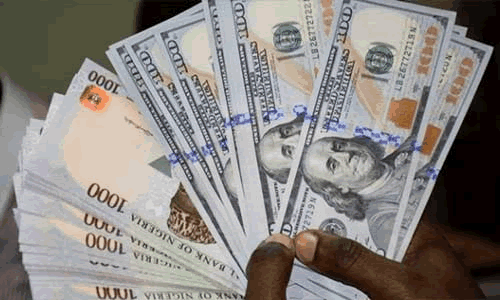The Presidential Committee on Fiscal Policy and Tax Reforms has proposed a fixed exchange rate of N800 per dollar for Customs import duties for the remainder of the year. This recommendation marks a significant shift from the current system, where Customs duty rates fluctuate frequently—sometimes changing as often as twice daily. This year alone, the exchange rate used for import duties has ranged between N900 and N1,700 per dollar, leading to widespread criticism from the business community.
Taiwo Oyedele, the committee’s chairman and a former partner at PwC Nigeria, highlighted this new direction during a discussion about the tax panel’s activities in Lagos. Oyedele emphasized that the volatile foreign exchange (FX) market has made it difficult for businesses to plan effectively, as the Nigeria Customs Service (NCS) adjusts import duty rates based on the constantly changing FX rates recommended by the Central Bank of Nigeria (CBN).
“When we did the budget, we projected the naira to dollar rate to be N800. Now, it is well over N1,000. Businesses need stability to plan effectively,” Oyedele stated. “We are urging the government to sign an order that sets the import duty rate at N800 per dollar for the rest of the year, till December.”
This recommendation aims to provide a more stable and predictable environment for businesses, which have been struggling with the erratic changes in import duty rates. Analysts have criticized the current approach, noting that it disrupts business planning and operations.
Dr. Muda Yusuf, Chief Executive Officer of the Centre for the Promotion of Private Enterprise (CPPE), suggested that Customs should adopt a quarterly exchange rate between N800 and N1,000 per dollar for assessing import duties. This would offer a more predictable framework for businesses.
In addition to the fixed exchange rate proposal, Oyedele mentioned that the committee has recommended consolidating over 100 different tax collection agencies at the federal, state, and local levels into a single central tax agency, to be known as the Nigerian Revenue Service. This move is intended to streamline tax collection and improve efficiency.
The committee also suggested implementing zero-based budgeting and introducing long-term appropriation practices. “The budget must be restructured to classify items under infrastructure, human capital investment, personnel cost and productivity, administrative overheads, debt service, and sinking funds,” Oyedele explained.
These recommendations by the Presidential Committee on Fiscal Policy and Tax Reforms aim to create a more stable and predictable economic environment, fostering better business planning and overall economic growth.



